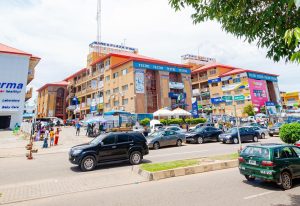Brazil’s former leader Lula survived a corruption conviction and cancer. Now he’s vying for the presidency again

Seventy-six-year-old Lula, as he is commonly known, has emerged as the frontrunner in the race against President After surviving throat cancer in 2011, da Silva was convicted for corruption and money laundering in 2017, charges stemming from a wide-ranging investigation into the state-run oil company Petrobras, dubbed “Operation Car Wash.” His legal troubles rumbled on until April 2018, when he surrendered to federal authorities and began serving a 12-year prison sentence.However, in March 2021, a court threw out his conviction, clearing the way for his political rebound.At a bar dedicated to da Silva in Rio de Janeiro, entrepreneur Jaciana Melquiades told CNN: “I’m very hopeful about Lula’s victory, I think we have a great chance of getting Brazil back on track.”Bolsonaro has done nothing for Brazil, said Omar Monteiro, 32, who manages the bar.”Living under this government is worse than I imagined it would be because, in addition to the curse of having Bolsonaro as president, we are going through a pandemic,” said Monteiro. “And I never, not even in my worst nightmares, imagined that we would have a president who is a denialist, anti-vaccines, anti-isolation.” Brazil’s economy is suffering rampant inflation and soaring unemployment, with hunger an increasing concern. “I think a lot has to change, we have to generate a lot of jobs and income because people are starving, in real need, and we have to improve Brazil’s relations with the world, which deteriorated under Bolsonaro’s government,” said lawyer Andre Pessoa.Still, Bolsonaro’s deficit in the opinion polls is narrowing and the President retains a committed base of ultra-conservative supporters that he has mobilized by maintaining what his opponents call radical positions on abortion access, gun rights and Brazilian sovereignty over the Amazon rainforest. And he has shown he is willing to incite his supporters against perceived opponents, calling for mass demonstrations outside the Supreme Court during a dispute with the judiciary in September 2021.Christopher Sabatini, senior fellow for Latin America at Chatham House, said that even if da Silva wins the election, his biggest challenge will be to unite a fractured country and hold off Bolsonarismo, as the ideology of the current president is known.”It’s not going to be like his first two terms in power,” said Sabatini. “Bolsonarismo, it’s not just any garden variety conservative party, it draws from evangelicals, it draws from very vitriolic, almost anti-democratic elements, and part of Brazilian society that’s called the Bibles, bullets and beef constituency.”Still, in da Silva strongholds, hopes are high for his return to power.”May he make Brazil move again, may he make Brazil flow again, may he make people smile, may he make the GDP flow, may he make the economy flow, jobs come back,” Monteiro said.”May he make everything go back to normal.”Camilo Rocha contributed to this report.







